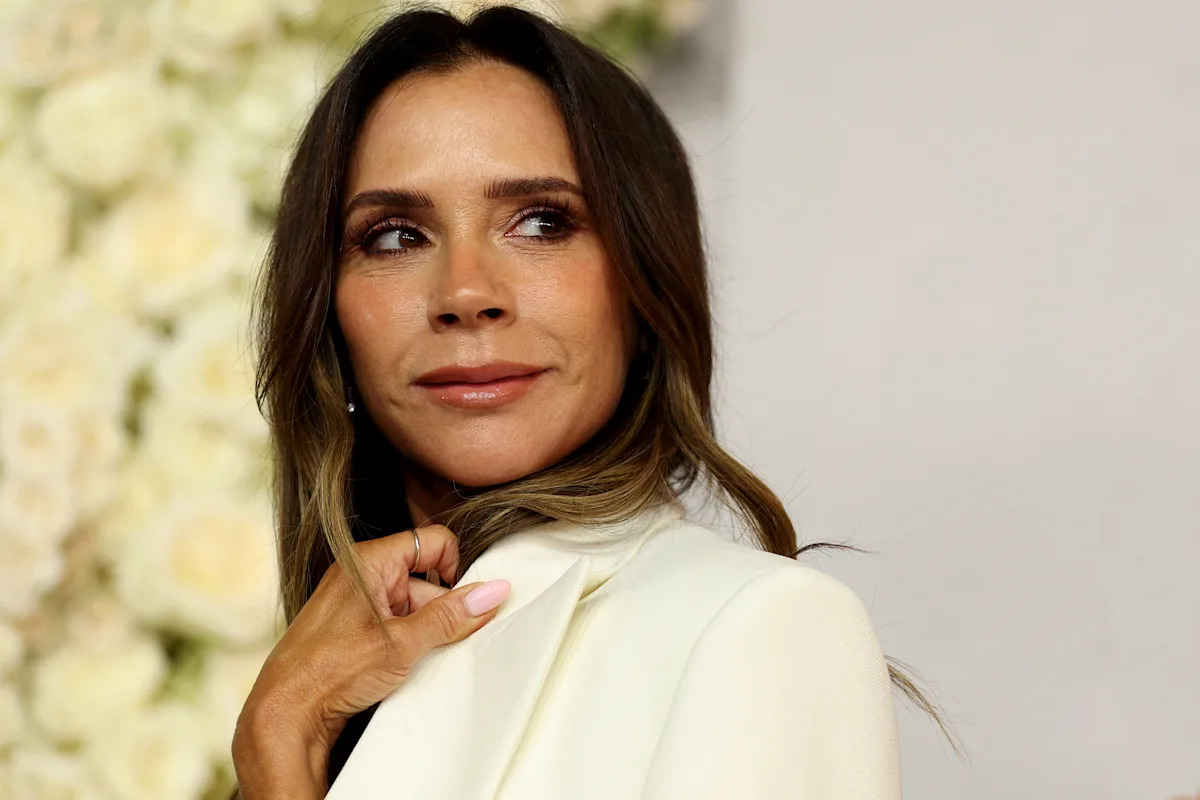From a lonely childhood to global superstardom, from tabloid takedowns to fashion world redemption, Victoria Beckham is finally telling her side of the story in Victoria Beckham, a three-part Netflix docuseries out now. The woman once known as “Posh Spice” opens up about the insecurities that shaped her, the spotlight that nearly broke her and the ambition that still drives her — all while preparing for the fashion show of her life. It’s a story of resilience, reinvention and self-discovery, told with raw honesty and a few cheeky cameos from husband David Beckham.
I watched the show, and it was a surprisingly intimate look at the woman behind the sunglasses — the one who restyled her school uniform long before she restyled her public image. From Victoria being weighed on national television six months postpartum to finally finding peace in her own skin, these are the quotes that stuck with me.
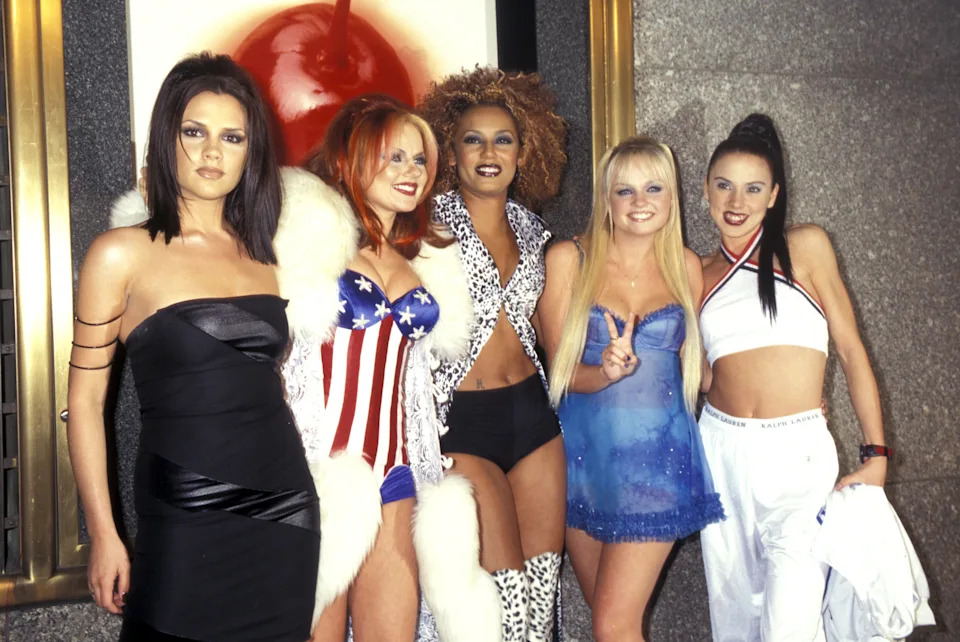
Victoria Beckham, Geri Halliwell, Melanie Brown, Emma Bunton and Melanie Chisholm of the Spice Girls. (Ron Galella, Ltd./Ron Galella Collection via Getty Images)
“I was definitely a loner at school. I was bullied, I was awkward, I wasn’t particularly sociable. I just didn’t fit in at all.”
In the first episode, Victoria reflects on her early struggles with self-worth and a sense of belonging. At age 7, she auditioned for the lead role in Frosty the Snowman, fibbing that she already had the costume just to get a leg up. It worked. Theater offered a way out.
“When you’re onstage, you’re somebody else — and I didn’t really want to be me. I didn’t like me,” she said. “I desperately wanted to be liked.”
Her parents remortgaged their house so she could attend theater school, which she also found to be a struggle.
“I wasn’t the best dancer, the best singer. I didn’t look like a lot of the other girls,” she said. “That’s where I started getting a lot of criticism about my appearance, my weight.”
Victoria said she was often hidden in the back during performances and nearly quit, but her father urged her to prove everyone wrong.
Everything changed in 1994, when she auditioned for a girl group. Alongside Mel B, Melanie C, Emma Bunton and Geri Halliwell, the Spice Girls were born.
“It was the first time that I ever felt like I belonged. All of a sudden, I was popular,” Victoria said. She credits the women for helping her feel a sense of belonging. That she was funny. That it was OK to be herself.
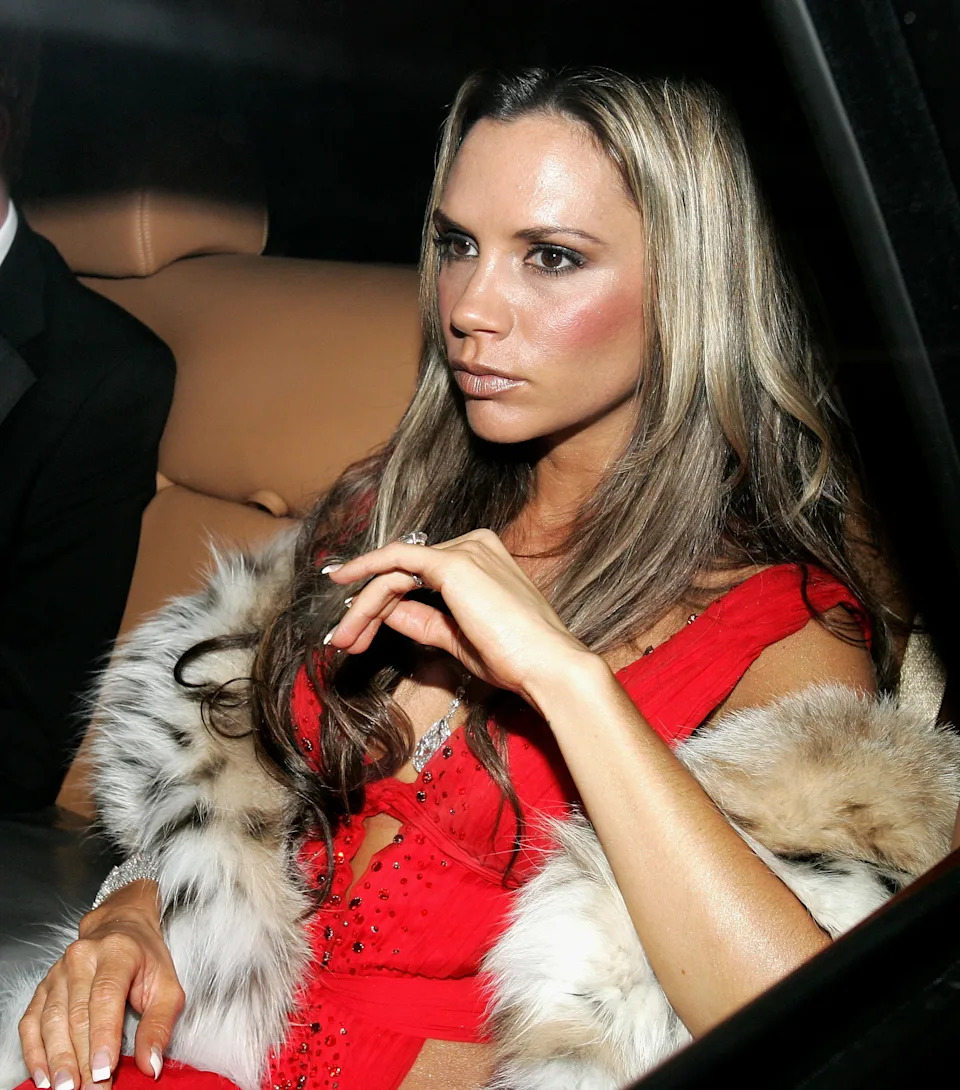
Victoria arrives for the reception following Elton John and David Furnish’s civil partnership in December 2005. (Chris Jackson/Getty Images)
“People thought I was that miserable cow that never smiled — and they weren’t wrong.”
When the Spice Girls disbanded in 2001, Victoria’s fast-paced life came to a halt. She had married soccer star David Beckham two years earlier, and suddenly found herself in Manchester, alone.
“One minute I’m spreading the word of ‘girl power’ and the next I’m a wife … not really having any friends,” she said. “I found that transition really, really difficult.”
David admitted in the series that he thought she’d enjoy the break, not realizing how creatively unfulfilled she was. Despite tabloid fame as a WAG, Victoria struggled to find herself.
“I became so self-conscious,” she said. “And I remember thinking: If I ever get an opportunity again, I’m not going to lose it. I’m not going to lose it again.”
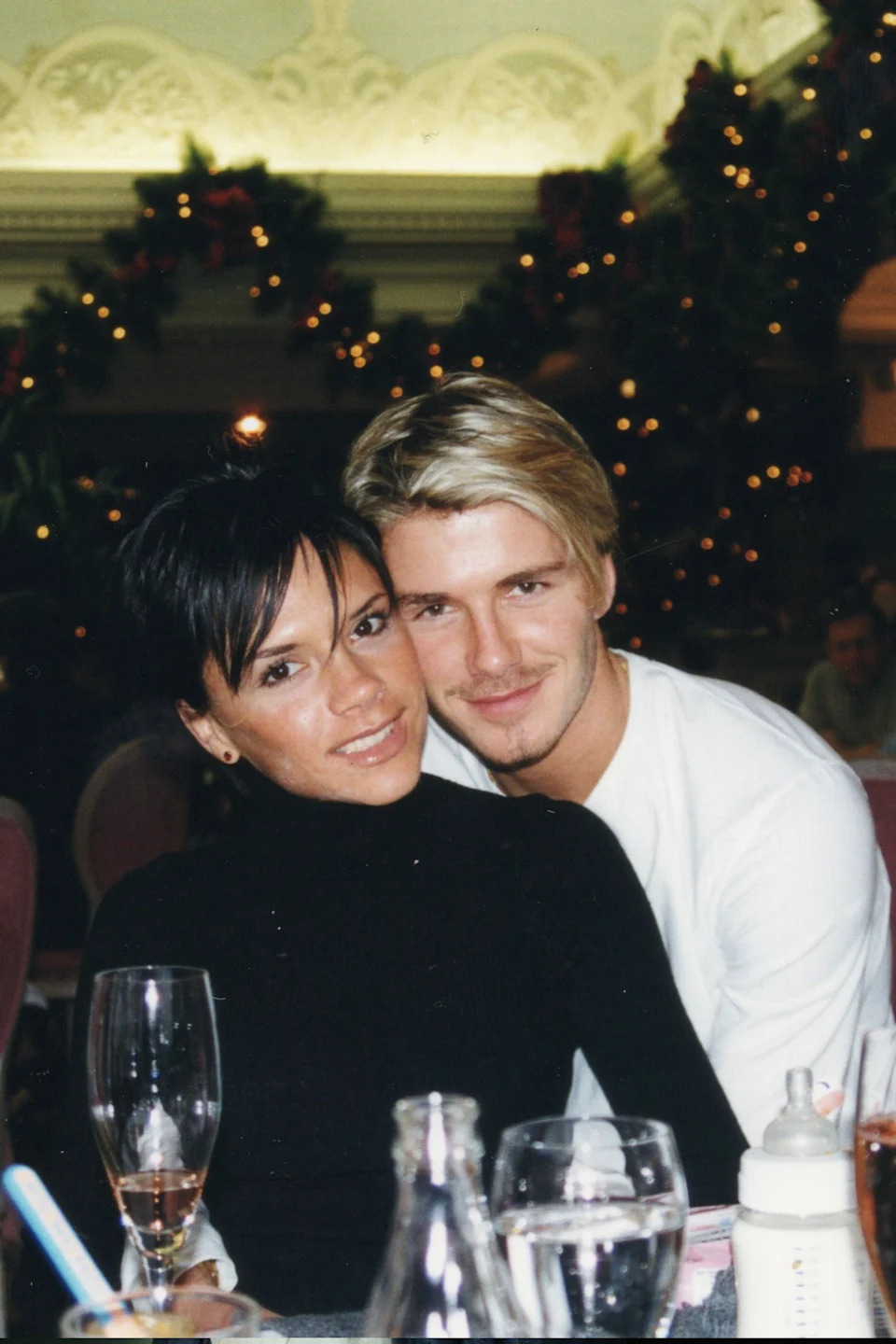
Victoria and David Beckham early on in their relationship. (Netflix)
“I became a simpler, more elegant version of myself and I went to work.”
Encouraged by David, she reunited with the Spice Girls in 2008 so their kids could see her onstage. She jokes that he “mom guilted” her into it.
“I hadn’t been Posh Spice in so long,” she said. “It had been fun, but it wasn’t what I loved anymore.”
Her passion was fashion — and it was time to pivot. The second episode, aptly titled “Kill the WAG,” focuses on shedding the caricature and building something real.
“I’ve been everything from ‘Porky Posh’ to ‘Skinny Posh.’ It’s been a lot.”
A devastating montage of headlines revealed the relentless scrutiny Victoria faced — often about her appearance. One memory stands out to her: getting weighed on national TV six months after giving birth to son Brooklyn.
“I was really, really young and that hurts,” Victoria recalled.
David said he saw how it affected her. Without control over the press, Victoria tried to control what she could: her body.
“I was controlling it in an incredibly unhealthy way,” she explained. “When you have an eating disorder, you become very good at lying. I was never honest about it with my parents. I never talked about it publicly. It really affects you when you’re constantly being told you’re not good enough.”
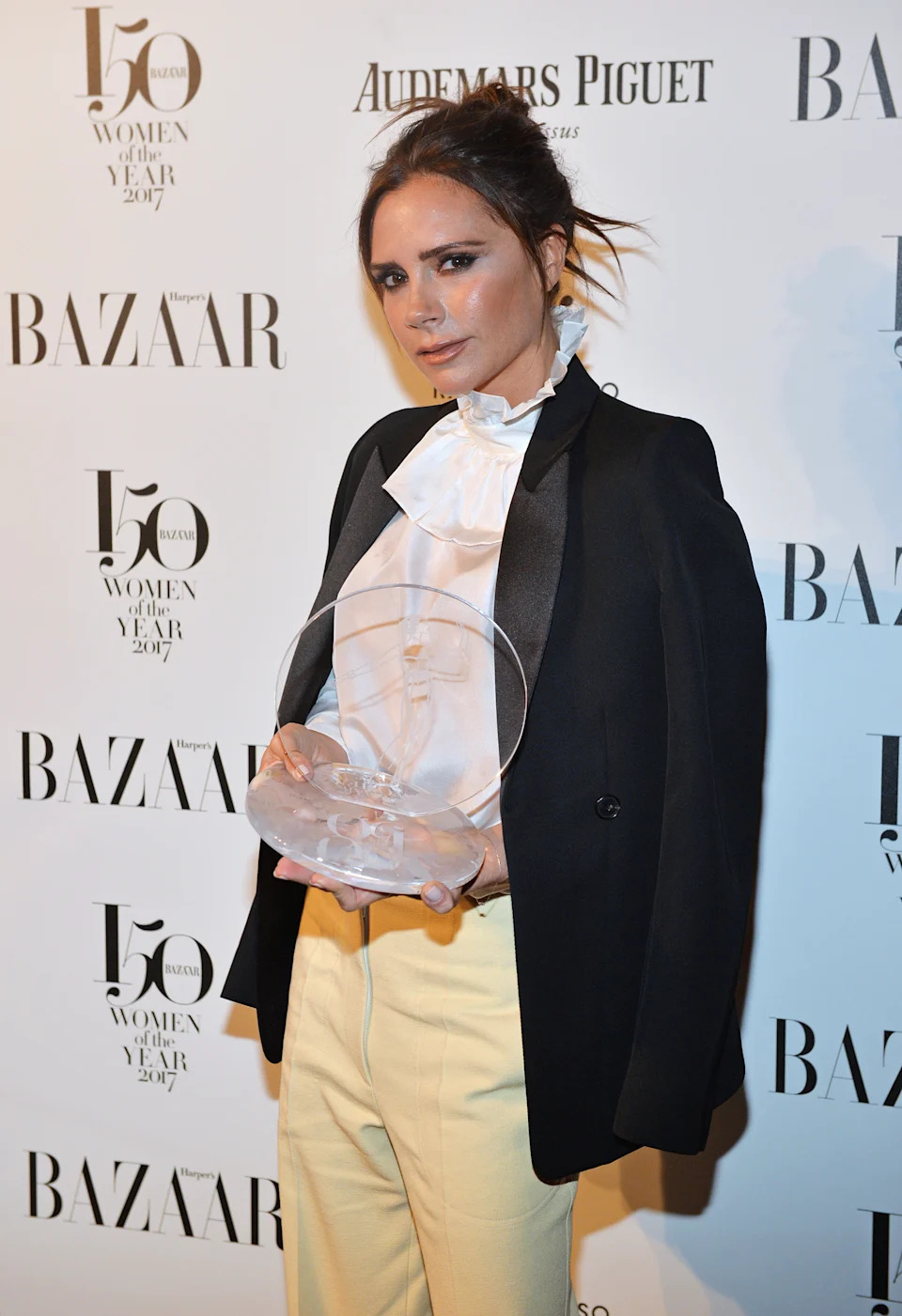
Victoria wins the British Brand of the Year award at a Harper’s Bazaar event in 2017. (Dave Benett/Getty Images for Harper’s Bazaar )
“We were tens of millions in the red.”
Her fashion label, the eponymously titled Victoria Beckham, launched in 2008 to acclaim, but profits lagged behind. Despite early success — and backing from Vogue’s Anna Wintour — the business struggled.
“We were doing things in a really extravagant way, and the business wasn’t growing at the same pace,” Victoria said.
By 2019, reports surfaced that her brand hadn’t turned a profit despite the line being in 400 stores. David, a primary investor, was concerned.
“I was panicked by it, because I never saw [money] coming back,” David admitted. “We always agreed we would support each other no matter what, but it worried me. This isn’t sustainable.”
Victoria was devastated by the headlines.
“I felt embarrassed. But it was fact. It wasn’t someone being unkind,” she said.
Worse still, it hit her at home.
“Yes, I’m going home to my husband — but I’m also going home to my business partner. I hated it. I absolutely hated it.”
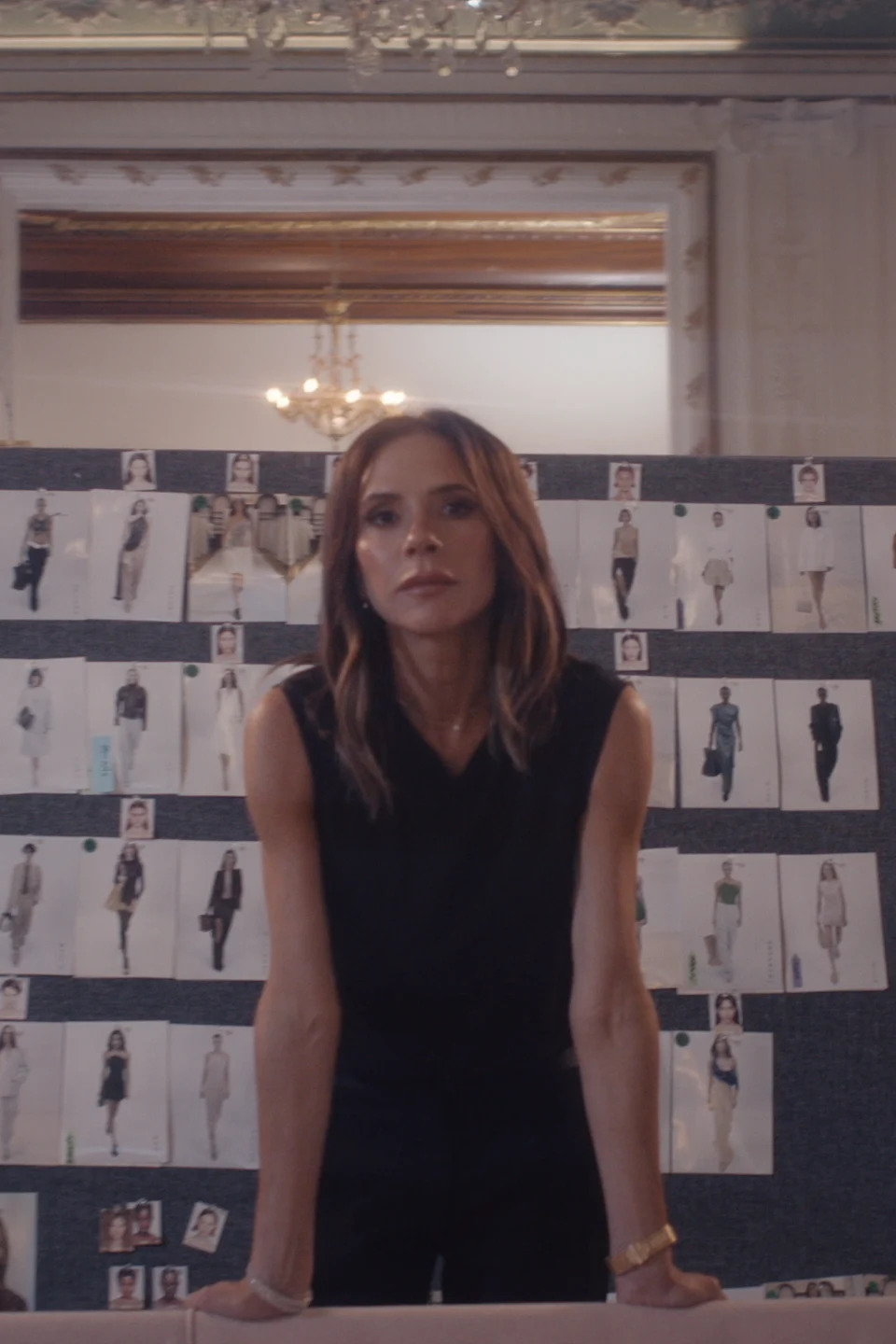
Victoria in her Netflix documentary. (Netflix)
“People were afraid to tell me no.”
In 2017, investor David Belhassen joined the team and started cutting through the chaos — including $70,000 spent on office plants and $15,000 to water them.
“That’s only the beginning,” he said in the series.
Victoria listened.
“I took it on the chin, and it was hard hearing those things. I hadn’t been to business school. I’d come from an entertainment background. We were an entertainment company that had never, ever worked for fashion before,” Victoria said. “I didn’t realize it at the time, but the waste was mind-blowing. … I hear it now and I’m horrified, but I allowed it to happen.”
As for why it happened, Victoria conceded: “I think probably there’s a power — the power of celebrity. People thought I wasn’t used to hearing no.”
She takes responsibility for missteps but has steered the ship back on course. In August, her fashion and beauty business reported double-digit growth for the fourth consecutive year.
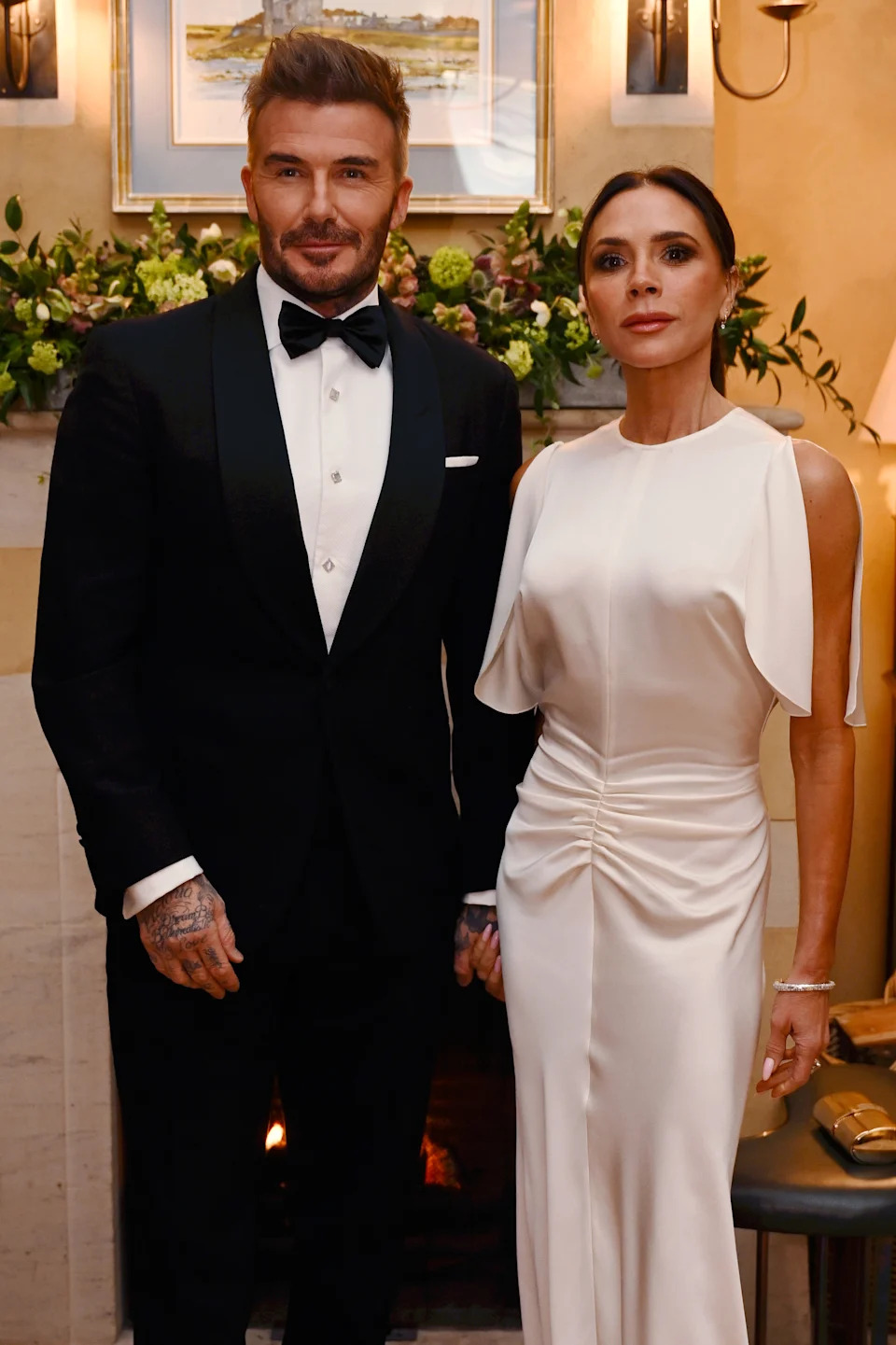
David and Victoria during a dinner at Highgrove House, a British royal residence, on Feb. 7. (Finnbarr Webster/Getty Images)
“Success feels good, I’m not going to lie.”
One of the most emotional moments of the series comes at the end of the third and final episode. After a successful showing at Paris Fashion Week, David asked Victoria when she’ll stop trying to prove herself — and to whom.
“Maybe a lot of it is to you,” she told him. “Of course, I feel bad about all that time when I had to ask you to help me out.”
David assured her she doesn’t need to prove anything — not even her ability to make a cheese sandwich.
“Let’s be clear,” Victoria said. “I couldn’t actually make a cheese sandwich very well.”
They laughed.
“I’m proud, and I’m not ashamed to say I’m ambitious,” Victoria said. “There’s still a lot I want to do.”
“You’re 51, I’m almost 50,” David said.
“We don’t look bad for 101,” she joked.
“So you’re not stopping here?” he asked.
“I’m not stopping here,” Victoria said.

